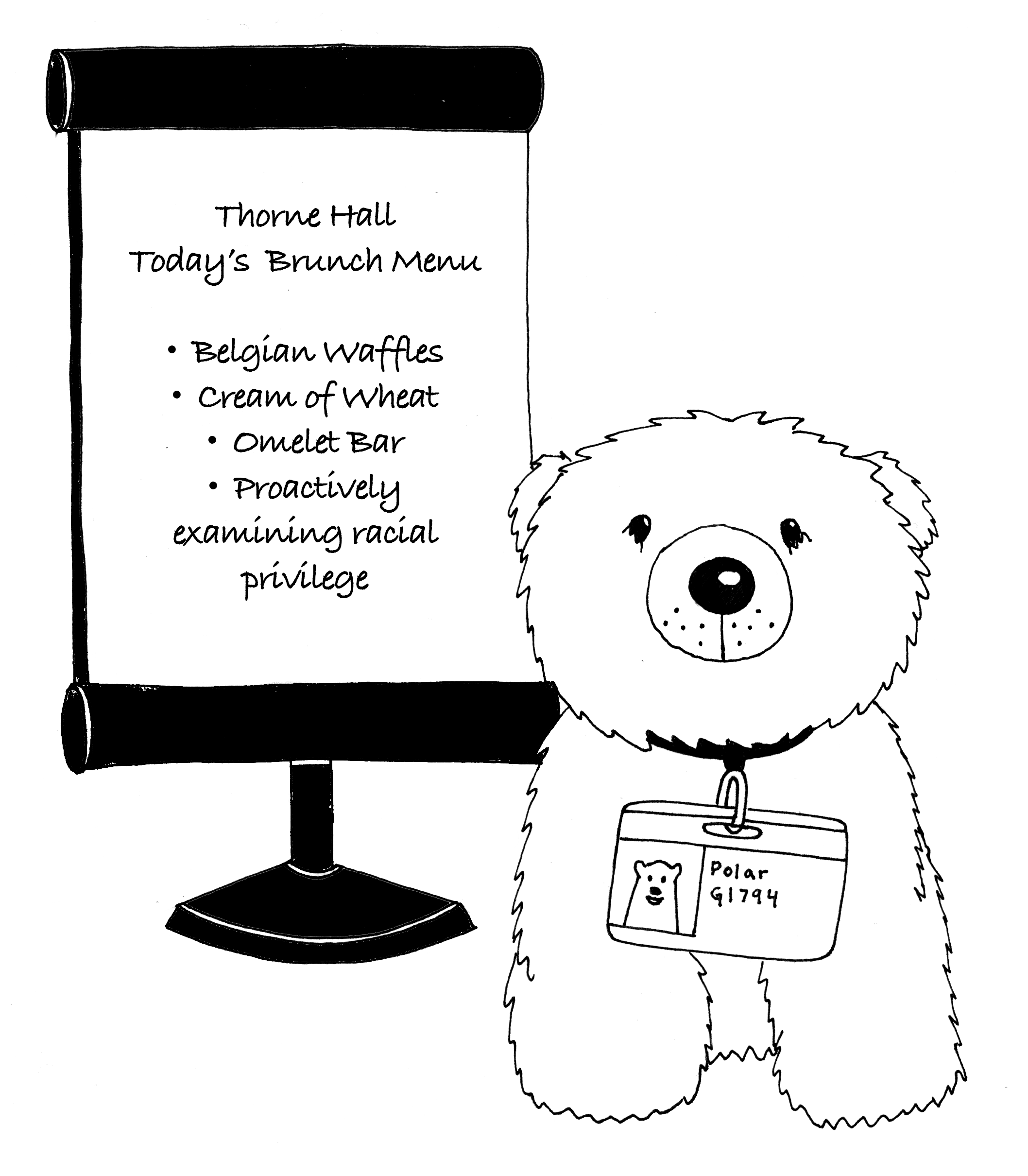Discussions from brunch: Seeking conversation to be proactive, not reactive
April 20, 2018
 This
piece represents the opinion of the author
.
This
piece represents the opinion of the author
.
I was at the gangster party. I was the kid with cornrows.
I’ve thought endlessly about the night of the party and the various checkpoints at which I could have recognized something was wrong. I didn’t blink at the email invitation. I laughed when friends showed me the fake chains in their Amazon shopping carts. I patiently sat as a housemate braided my hair, nodding along as my roommate told me stories of braiding his sister’s hair the same way when they were growing up. It didn’t register with me that as we spoke, I was undergoing a transformation that trivialized his experience and that of so many other black students. It wasn’t until we had migrated from Brunswick Apartments to SuperSnack, still in our party attire, that we realized the problem. Containing her rage despite the scene before her, a fellow student sat down and calmly explained the anguish permeating the space we had entered. It was a situation that has become all too familiar, in which the burden of explanation was placed on a person of color.
Too often, the people responsible for incidents of racial bias plead ignorance. I was certainly one of them. I never held outwardly racist views, so it felt like the only way to rationalize my participation in a racist event. But in retrospect, I had infinite opportunities for enlightenment. Fueling my ignorance was apathy—a general indifference to an issue that didn’t directly affect me. Throughout my life, I had been able to go about my day without confronting racial issues. This was a privilege, and an inherently white one.
Given that the gangster party has not been the only event of its kind at Bowdoin, I don’t think it would be unfair to assume that there are other white students who identify with this sentiment. Modern evidence is provided by the recent research conducted by students in the Diversity in Higher Education sociology seminar, which found that the vast majority of seniors who viewed racial self-segregation as “natural” were white. In contrast, those who explained the phenomenon as a response to Bowdoin’s white institutional context were primarily students of color. Even today, two years removed from the “cracksgiving,” “gangster” and “tequila” parties, it seems most white students are out of touch with the opinions of their non-white peers. If they cared more about the issue, or had given it more thought, the responses to this survey might not have been so dichotomous.
The party and its aftermath made it impossible to persist in my state of apathy. My actions propelled me to the forefront of conversation, and it was incredibly difficult at first. I lacked the vocabulary necessary to articulate my thoughts, and often misspoke. But as I continued to muddle through the issues with my teammates, professors and the people I had hurt, it got easier. It hasn’t been glamorous or expedient, but these conversations have been some of the most formative of my life. I just wish that I had engaged in them sooner.
My point, which probably feels redundant, is that the information we as white students need to become good allies is all around us. We need to actively seek out conversation, grapple with it and incorporate issues of race into our own experiences. It should be a proactive quest rather than a reactive one, like mine sadly was. The burden of education has been placed on students of color for far too long. We owe it to our roommates, friends and peers to be better. Learn from my mistakes, and let’s make Bowdoin a better place.
Catch me at brunch with Rebkah, Kevin, Justin and Nora this weekend to continue the conversation.
Harrison Hawk is a member of the Class of 2018.


Comments
Before submitting a comment, please review our comment policy. Some key points from the policy: